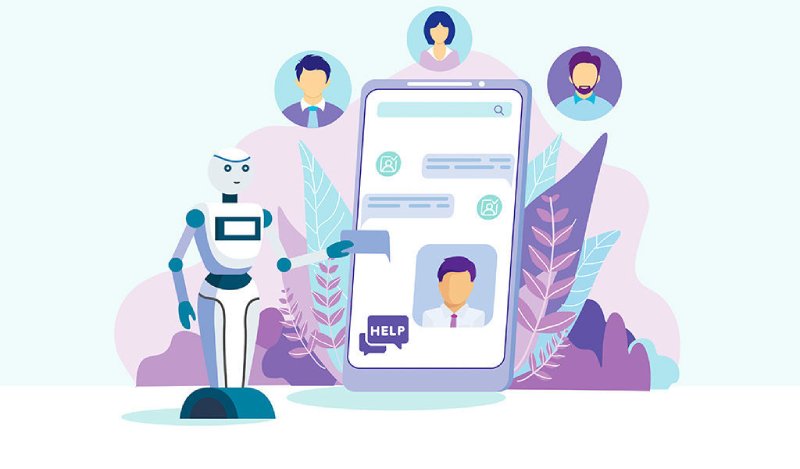The Future of Chatbots in Business with Machine Learning

Optimizing efficiency is integral to any business. In 1961, the General Motors Company deployed the Unimate robotic arm in their die casting factory. Less than 20 years later, automated robotics was a regular fixture in automotive factories, churning out cars at a rate unfathomable to those who stood on the first assembly line. In 1994, a student at the Massachusetts Institute of Technology developed Eliza, widely considered the first chatbot. Today, chatbots are a common first line of engagement in customer community management, and CNBC projects that by 2024, 75-90% of all customer digital queries will be handled by bots.
Moreover, Automation is a major driver of efficiency, and thanks to continued advancements in machine learning, chatbots promise to be a key part of business evolution. Invesp predicts bots have the potential to save up to 50% in customer support costs. Efficiency is just one part of the bigger picture. Read on to learn more about the potentiality of chatbots.
The Customer Experience
While increased utilization of chatbots helps free overwhelmed employees to handle more complex or delicate tasks, the main driver behind their adoption will be the customer experience. According to LivePerson, 85% of customers want to communicate with brands through conversational experiences. Chatbots offer immediacy, 24-hour service, easy answers to simple questions, and approachability. Thanks to chatbots, customers can get what they want or need from your brand at their own pace.
Your customer should never be frustrated with their experience interacting with your company. However, it’s not enough to be able to respond to questions at all times. Responses to those questions should be good and valid answers, no matter how unique the question is.
Chatbot Evolution
Artificial intelligence, or AI, is the real key here. Chatbots were originally simple Q&A bots, based on decision tree logic and incapable of recognizing complex questions. However, with machine learning, the more interactions a chatbot has with customers, the more specific and personalized its answers can be to a wider variety of questions. Chatbots have a greater potential to gather and retain more data about a customer than their human counterparts, leveraging information about the customer and identifying trends in real-time that can boost audience engagement overall.
The potential of AI is only limited by the pace of its evolution. Learning algorithms can now harvest millions of unique data points, both numerical (for example, S&P 500 returns) and textual (like tweets), and use these to understand and forecast things like market performance, commodity pricing, and company performance. This process can even hedge for unforeseen variables and market turbulence.
Chatbot Potential
With the staggering amount of data at our fingertips, audiences often suffer from information overload and fatigue for menial tasks. Enhancing the customer experience through chatbots doesn’t have to stop at answering FAQ’s. Bots trained with conversational AI can help customers fill out forms or surveys, replacing what is typically a monotonous series of clicking with an interaction that can genuinely feel like a conversation, enhancing a customer’s experience with a brand.
Furthermore, the expanded functionality of bots is already exploring in the financial sector. At HSBC, customers can move money, manage accounts, handle credit card transactions, and other digital banking assistance, all from Apple messaging, without the need to download an additional app. Companies are also asking if chatbots can be used to sift through the markets’ noise. Imagine if, instead of receiving raw data and breaking down the numbers yourself. You could ask a bot to monitor stock and receive insights any time data suggests a potential change in the company’s share price.
Moreover, chatbots have a key piece to play in the future of many industries. They may have found notable footing in finance, analytics, and customer service. Still, thanks to machine learning. The potential of bots as drivers of efficiency and enhancers of experience may only be the beginning. We could soon see widespread use of bots in healthcare, marketing, and beyond.
For more tips and tricks on bot development and building bot frameworks directly from industry experts, visit discover.bot.
Already have a bot? Register your bot and give it a home to grow on .bot domain.
ALSO READ: How Machine Learning Using Transformers Can Help Fintech Data Processing
ALSO READ: AI For Web Development: Everything You Need To Know




